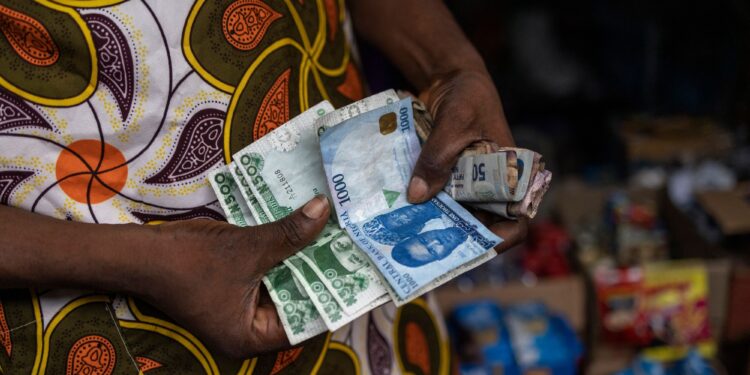Nigeria’s money supply experienced a significant uptick of 17 percent over a two-month period, reaching its peak in July, driven by a staggering N7.71 trillion increase in the naira value of foreign currency deposits. This surge can be attributed to recent reforms in the forex market, setting the stage for potential economic challenges, including heightened inflationary pressures, potential hikes in the monetary policy rate (MPR), and increased production costs.
Inflation Continues to Soar
Nigeria’s economy has been grappling with an escalating inflation rate, reaching a concerning 24.8 percent in July. This persistent inflationary trend can be attributed to various factors, including security issues, the Russia-Ukraine war, naira depreciation, and the expansion of the money supply.
Forex Market Reforms Exacerbate Growth
According to findings from Financial Vanguard, the recent measures implemented by the Central Bank of Nigeria (CBN) in the forex market have further exacerbated the growth in money supply. These measures, such as the elimination of multiple exchange rates and the introduction of the ‘willing seller-willing buyer’ model in the Investors and Exporters (I&E) forex window, led to a remarkable 70 percent depreciation of the naira, reaching N789.08 per dollar in July, compared to N464.67 at the end of May.
However, financial experts point out that while these measures played a significant role, other factors such as customer behavior, interest rates, investments, and general economic conditions may have also contributed to the sharp spike in money supply.
Quasi Money Surges Dramatically
During the two-month period, one of the major components of money supply, known as Quasi Money, which includes foreign currency deposits, savings, and fixed deposits of bank customers, surged by N7.71 trillion or 23 percent to reach N40.77 trillion in July, up from N33.06 trillion in May. This translated to an average growth rate of 11.45 percent for the two months, a sharp contrast to the 0.64 percent average growth observed in the preceding five months from January to May.
Broad Money Supply Expands
This surge in Quasi Money subsequently triggered a 17 percent increase in the Broad Money Supply (M2) during the same two-month period, pushing it to N64.93 trillion in July, up from N55.55 trillion in May. Before June, M2, which comprises Narrow Money (M1) and Quasi Money, had an average monthly growth rate of 1.23 percent, growing from N52.84 trillion in January to N55.55 trillion in May. However, the average growth rate in M2 surged to 8.3 percent between June and July.
Experts Weigh In
Commenting on this development, Nnamdi Nwizu, Co-Founder of Comercio Partners, emphasized the relationship between naira depreciation and the growth of Quasi Money. He also noted that other factors, such as customer behavior, interest rates, and overall economic conditions, played a role in this surge.
Tunde Abidoye, Head of Equity Research at FBNQuest Securities Limited, highlighted the impact of naira depreciation on the value of foreign currency deposits, stating that it led to an increased demand for naira to meet foreign currency obligations. Abidoye also mentioned elevated interest rates and weak economic conditions as contributing factors.
Impact on the Economy
The surge in Quasi Money may have several implications for the Nigerian economy. It could lead to reduced consumer spending, decreased investment by firms, and a slowdown in overall economic activity. It also reflects inflation expectations, as people cut down on spending in anticipation of higher inflation rates, indicating reduced confidence in the economy.
Moreover, the increase in Quasi Money may impact the cost of imports, potentially leading to imported inflation if businesses pass on increased costs to consumers. Given Nigeria’s high import dependence, this could further pressure domestic inflation.
Implications for Monetary Policy
Experts suggest that the Central Bank of Nigeria (CBN) should consider the surge in Quasi Money when formulating monetary policy. The CBN may need to implement contractionary measures, including higher interest rates, to mop up excess money in circulation and control inflation.
In conclusion, the sharp growth in Quasi Money, potentially driven by naira depreciation, poses complex challenges for Nigeria’s economy. Further analysis is required to fully understand the dynamics at play and their implications. Monitoring the relationship between Quasi-Money growth, naira depreciation, and inflation will be crucial for financial analysts and policymakers in the coming months to make informed decisions for effective economic management.











